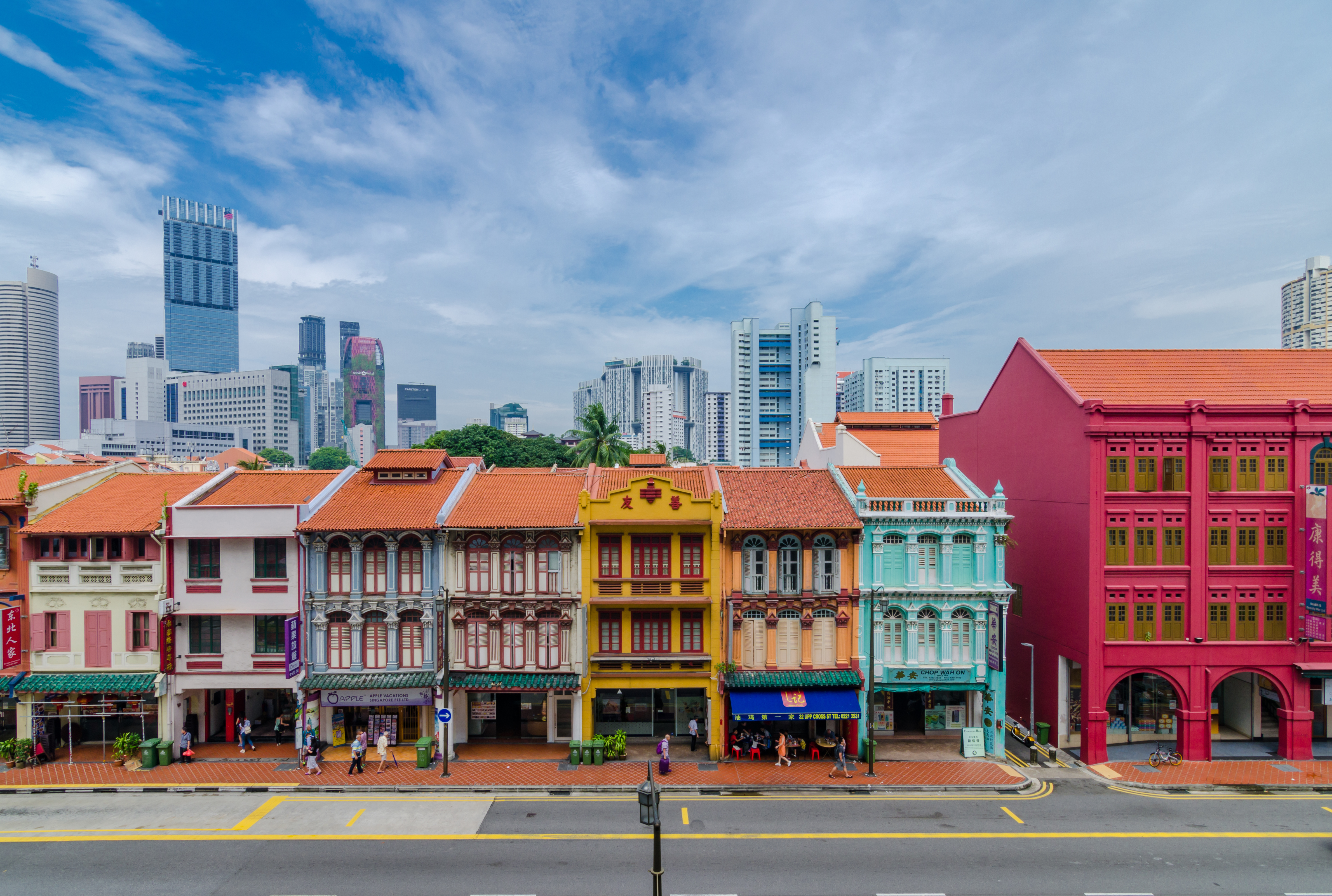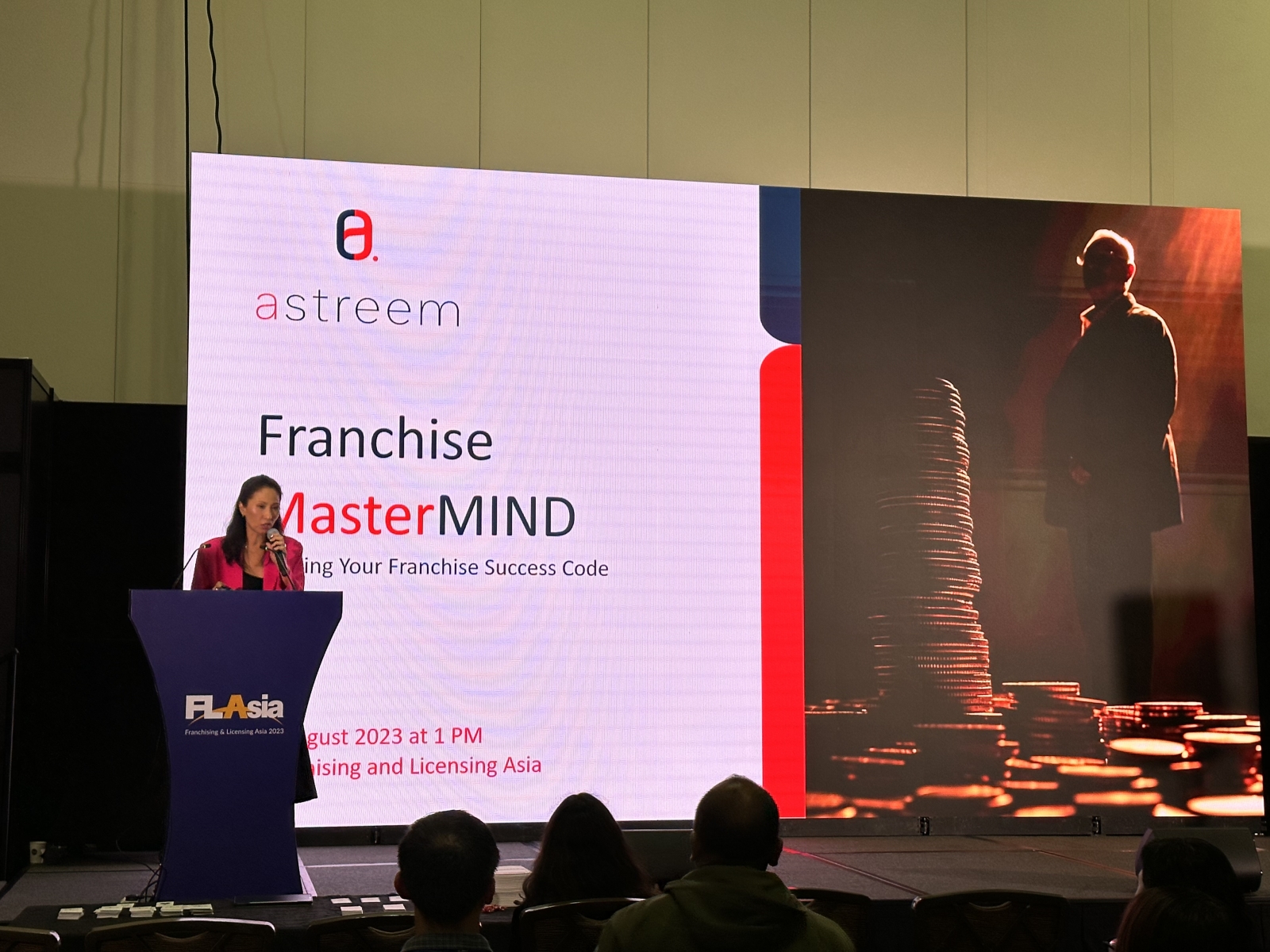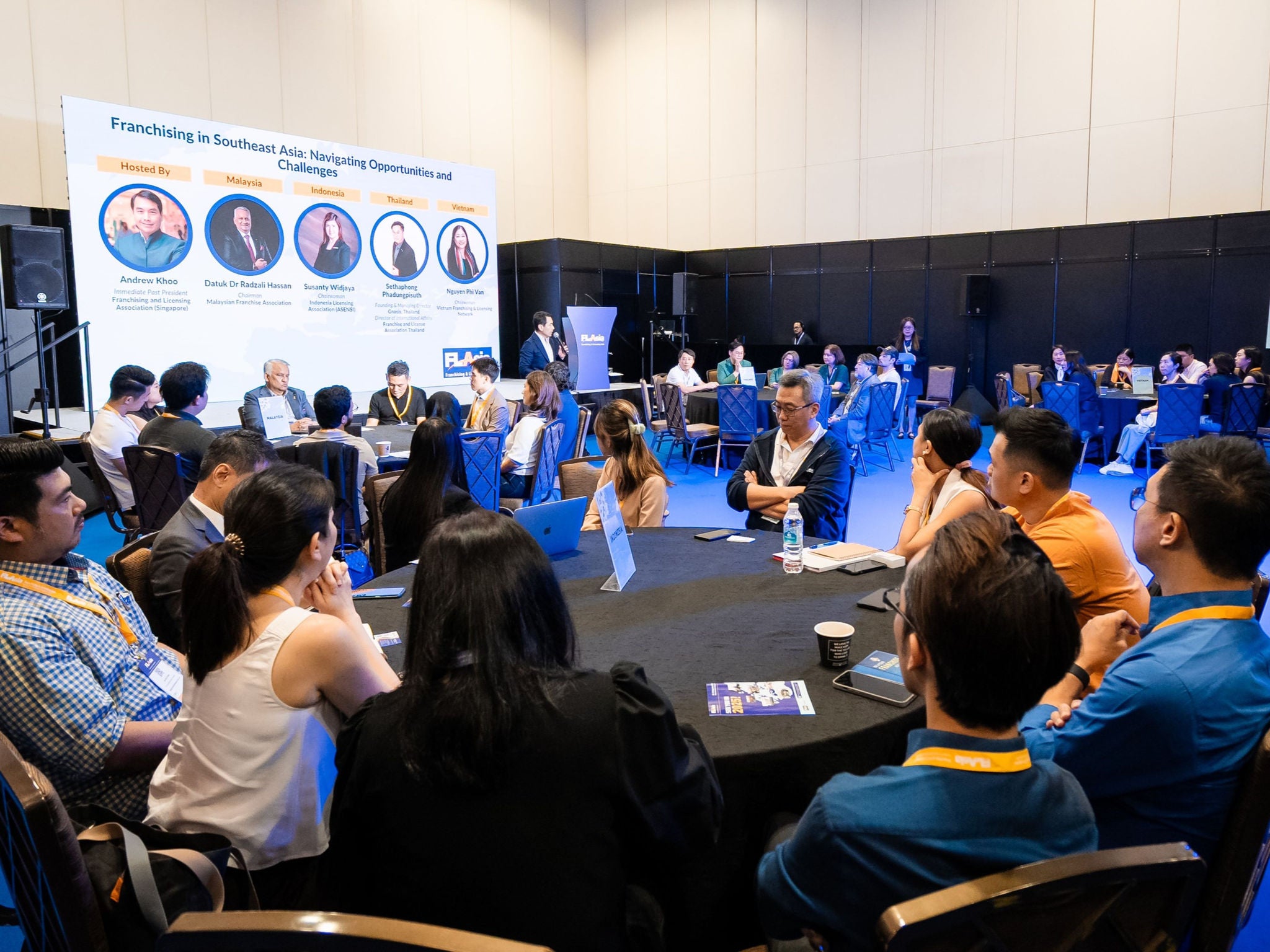From Corporate to Franchise King: Singapore's $18 Billion Opportunity Economy
As FLAsia 2025 approaches, we unpack the industry's seismic shifts from digital disruption to Chinese competition—and what high-net-worth Singaporeans need to know
The franchise industry in Singapore is experiencing a transformation more dramatic than a hawker centre's morning rush. With global franchise output projected to exceed US$936.4 billion (S$1.27 trillion) in 2025—a 4.4% increase from 2024—the stakes have never been higher for investors, entrepreneurs, and established business owners looking to scale their operations International Franchise Association.
Speaking at a recent episode of Chills with TFC, three industry veterans painted a picture of an ecosystem in flux: digital transformation, supply chain pressures, and the relentless march of Chinese brands reshaping the competitive landscape. Their insights, gathered ahead of the 20th edition of Franchising & Licensing Asia (FLAsia) at Marina Bay Sands from 18-20 September, reveal both unprecedented opportunities and sobering realities.
The Digital Reckoning
"Everyone needs to go into digital, needs to go into AI technology. Why? Because manpower is not [just] expensive—it's because you cannot find [staff]," explained Mr Gan Shee Wen, President of the Franchising and Licensing Association (Singapore), during the podcast discussion.
Gan's furniture retail business epitomises this transformation. After successfully penetrating China's cutthroat market since 2012—when most were buying from China, he was already selling into it—his company has evolved into something resembling a training institute rather than a traditional retailer.
"My interview is, 'Boss, got to work Saturday, Sunday. I don't want.' See, you are in retail, you don't work Saturday, Sunday, then when you wanna work? Monday, Tuesday, when there's no customer? Then how you earn commission?" he noted, highlighting the labour shortage driving digital adoption.
This isn't merely about convenience—it's about survival. Ms Hsien Naidu, CEO of Astreem Consulting and a 20-year franchise industry veteran, emphasises that successful franchisors must now integrate technology as a core value proposition to their franchisees. "You have no choice but to get smarter with how you structure your business model," she explained, referencing the compound pressures of rising rental costs, escalating cost of goods post-COVID, and now labour expenses.
The numbers support this trend: Asia contributes over 30% of global franchises, with digital-first experiences and technology-driven innovation topping the 2025 franchise trends FLA Singapore.
The China Factor: Playing a Different Game
Perhaps no market exemplifies the franchise industry's evolution more starkly than China. Gan's experience offers a masterclass in adaptation: "In China, you get a franchisee, they don't pay you. Instead, you gotta give them some rebate on their renovation. Give them discount on the display item. Sometimes display also must give free. In China, it's as good as you paying to open a store."
This reversal of traditional franchise economics reflects China's maturity and competitiveness. With over 4,000 franchise brands and 500,000 outlets, China leads the Asian franchise market FLAsia 2025. The implications for Singapore-based franchisors are profound: succeed in China, and you've mastered one of the world's most demanding markets.
Recent data underscores Chinese brands' regional expansion ambitions. Over 80% of Chinese companies plan overseas expansion within three years, with ASEAN countries as their top choice Singapore Global. By the end of 2024, over 60 Chinese F&B brands operated more than 6,100 outlets across Southeast Asia—a threefold increase from previous levels.
For Singapore's high-earning professionals considering franchise investments, this presents both opportunity and competitive pressure. The bar for operational excellence, customer experience, and franchise partner support has been raised significantly.
Case Study: Super Green's Pragmatic Success
Mr Lee Shao Rong's journey with Super Green illustrates how practical, franchisee-centric thinking can succeed in today's market. After losing a five-figure sum on his first franchise venture—approximately S$50,000 on a local coffee brand where rental alone cost S$16,000-17,000 monthly—where he was told "you are the chosen one" but received inadequate training and unrealistic projections—Lee pivoted to the healthy food sector.
Starting with a single NTU outlet in January 2020, just before COVID hit, Super Green now operates 11 outlets (five corporate-owned, six franchised) across Singapore's CBD. The brand's success lies in its disciplined approach to location selection and operational efficiency.
"We are not something that people travel to eat. You need to be convenient," Lee explained. His outlets target office workers during lunch hours, with strategic positioning near other food options to capture foot traffic. The key insight: "We need some competition. Maybe not direct competitor, but we need other food to be around us that people will travel there to look for food."

Super Green's financial model reflects market realities. Equipment costs are kept to S$20,000 (versus S$100,000+ for commercial ovens), targeting 18-month breakeven periods. The brand prioritises value for money over premium pricing, refusing to increase prices simply because of higher rental or labour costs.
"We can't say, 'Oh, because high rent, high manpower, got to increase the price.' But we got to think: is our food worth this amount of money?" Lee noted, demonstrating the customer-centric thinking that drives sustainable franchise success.
Location Strategy: The New Mathematics
The conversation revealed sophisticated thinking about location selection that extends far beyond traditional "location, location, location" wisdom. All three panellists emphasised the counterintuitive principle of locating near competitors rather than seeking isolation.
"The fact is if there is nobody there, maybe there's no business there," Naidu observed. "You shouldn't be afraid to choose a location where your competitors are."

For CBD locations specifically, the mathematics have evolved. Super Green's outlets close at 4 PM rather than evening hours, recognising that CBD locations become ghost towns after office hours. "From two to seven, you probably don't have like 10 customers. So we now close at four for these outlets, and then we don't waste money trying to operate just to be open," Lee explained.
This operational discipline extends to weekend requirements. Many CBD leases require Saturday-Sunday operations, which Lee identified as loss-making for most F&B concepts. Successful negotiation of operating hours becomes crucial for franchise viability.
The Investment Landscape
For Singapore's sophisticated investor class, franchise opportunities span multiple sectors experiencing rapid growth:
Health and Wellness Revolution: The post-pandemic focus on health continues driving demand for fitness studios, beauty wellness services, and healthy food concepts. Franchise opportunities in boutique fitness, wellness spas, and nutritional concepts are attracting significant interest.
Home Services Boom: Remote and hybrid work models have permanently altered consumer behaviour, increasing demand for home improvement, maintenance, and smart home technology services. Cleaning, organisation, and tech solutions for home automation represent lucrative franchise categories.
Senior Care and Childcare: Singapore's ageing population and focus on family well-being drive consistent demand for senior care services and early education centres. These sectors offer long-term stability and community impact potential.
The licensing sector presents particularly attractive opportunities for IP-rich individuals and companies. Disney's licensing business in Asia now contributes nearly 40% of global consumer products revenue, while partnerships between Japanese character brands and Singapore-based licensing agencies demonstrate cross-border potential Global Franchise.
Risk Management and Due Diligence
The panellists' experiences highlight critical due diligence factors for potential franchisees:
Financial Adequacy: "If you do not have enough money, you might not be able to stay the journey. So money is very important," Naidu emphasised. Her upcoming Franchise Mastermind workshop at FLAsia will address the often-overlooked cash flow requirements beyond initial franchise fees.

Franchisor Commitment: Successful franchises require ongoing brand investment, product development, and franchisee support. Lee's experience with his failed coffee franchise illustrates the consequences of inadequate franchisor support: "The training wasn't that great. I tried making coffee, but I was still bad at it."
Market Research: Professional people counting, competitor analysis, and understanding customer behaviour patterns are essential. "A lot of people don't act like franchisees. They will just [say], 'Oh yeah, I want this location because it's near my house,'" Naidu noted.
Operational Realities: Franchisees must honestly assess their time commitment and operational involvement. Lee's initial expectation of freedom from his military background quickly gave way to "seven to nine [hours] every day" for the first month.
The Symbiotic Future
The franchise relationship is evolving from a traditional franchisor-dominant model toward genuine partnership. "It's a symbiotic relationship," Naidu explained, noting that successful franchisors must continuously invest in brand development, operational support, and franchisee success.
This shift reflects market maturity and competitive pressures. With Singapore's typically shorter lease terms compared to markets like Australia or America, franchisees require continuous franchisor support to navigate from one lease term to another.
"The franchisee has no reason to continue in the next term if the franchisor is not doing any of those things," Naidu observed, highlighting the performance-based nature of modern franchise relationships.
.jpg)
Looking Ahead: FLAsia 2025 and Beyond
As the 20th edition of FLAsia approaches, the event's evolution mirrors the industry's transformation. New features include Country Pavilions showcasing concepts from South Korea, Malaysia, and Singapore; a dedicated Licensing Village; and for the first time, a Hawkerpreneur Zone spotlighting Singapore's cultural heritage entrepreneurs.
The Hawkerpreneur movement represents a uniquely Singaporean innovation: young entrepreneurs transforming traditional hawker stalls into scalable businesses. Success stories like Hawker Chan—the first street food stall to earn a Michelin star, now with over 30 global outlets—demonstrate the potential for cultural authenticity combined with modern business practices.
For Singapore's high-net-worth community, the franchise sector offers diversification opportunities across defensive and growth categories. However, success requires understanding the industry's new realities: technology integration, competitive intensity, and the premium on operational excellence.
The conversations with industry veterans reveal an ecosystem where traditional advantages—prime location, significant capital, established networks—remain important but insufficient. Success increasingly depends on adaptability, franchisee empathy, and systematic operational thinking.
As Gan Shee Wen noted about his role as FLA President: "I wish to bring and connect a lot of businesses and to educate them about franchising and licensing as a form of business." For Singapore's business community, that education has never been more valuable—or more urgent.
You can now be our community contributor and make a pitch to have your favourite personality be on our show.
Join our community group and drop us your insights on this topic.

-4.png?width=50&name=Square%20(2)-4.png)













Let us know what you think of this post